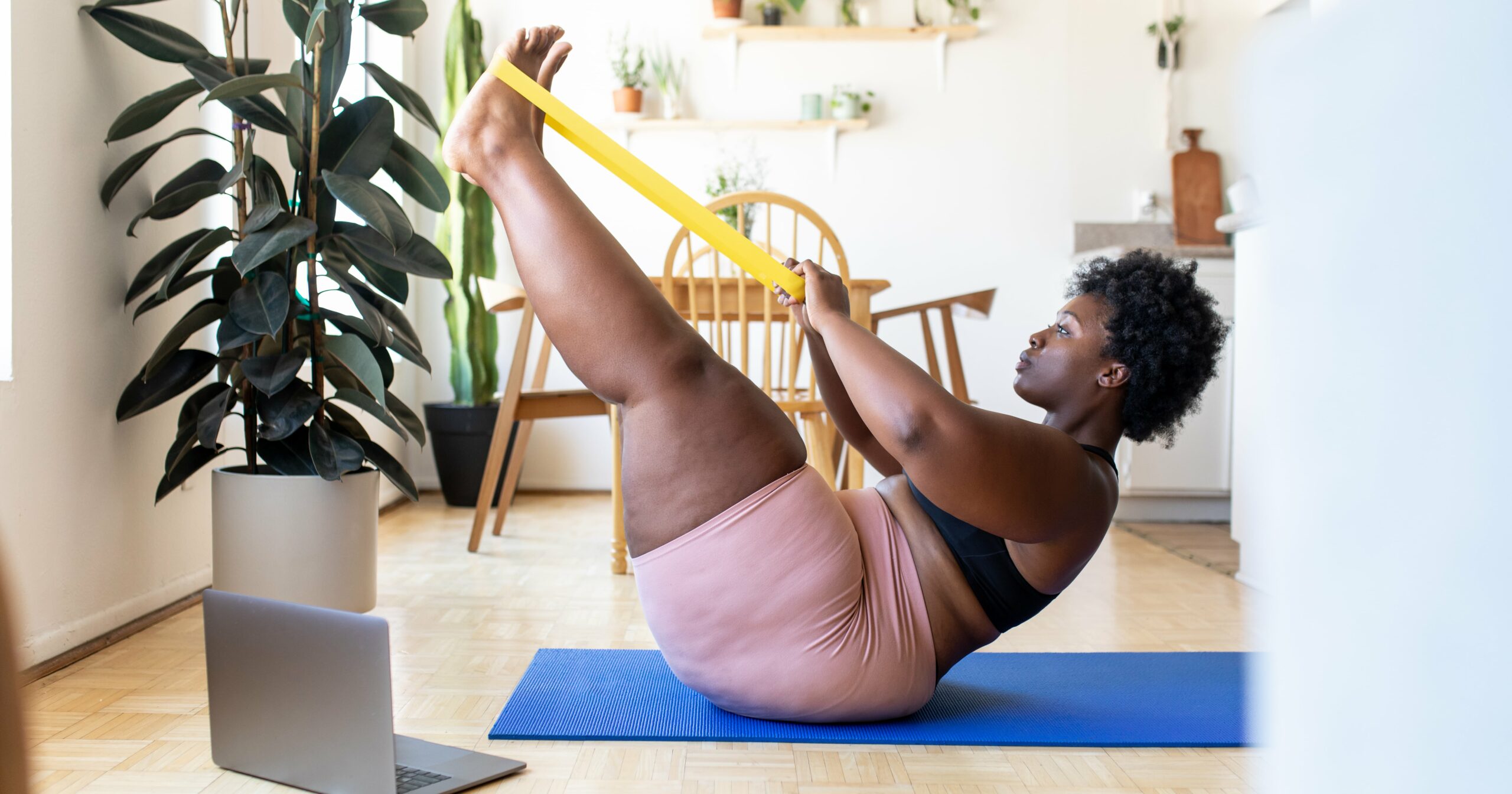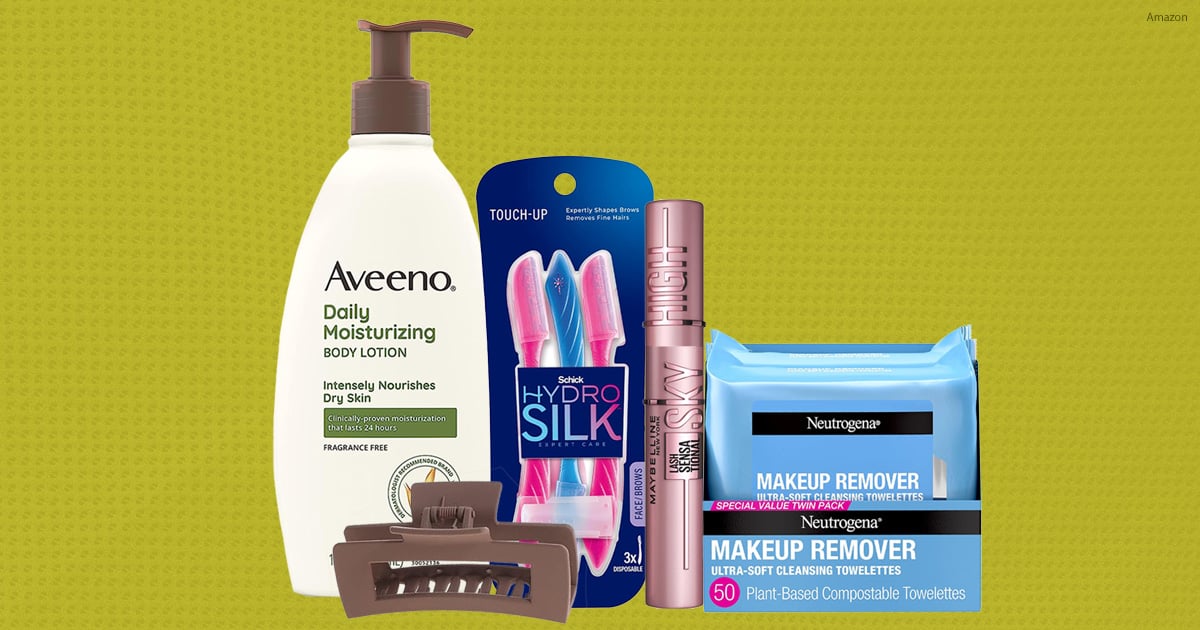Despite their versatility, resistance bands are often overlooked and underrated in the realm of fitness gear – but they shouldn’t be. Resistance bands have several benefits. For one, they’re versatile. You can use them in numerous ways, whether incorporating them into your at-home exercise routine or bringing them to a barre class for added resistance. They also make excellent travel companions, taking up minimal space in your suitcase and allowing you to maintain your workouts while on the go. Additionally, resistance bands are affordable, typically costing between $10 and $30. And we hope it goes without saying, but they’re effective at strengthening your muscles too.
If you’re new to resistance bands, it’s important to understand the fundamentals. According to Karina Blackwood, a fitness trainer and certified Pilates instructor, resistance bands, also known as exercise bands or fitness bands, are elastic bands made from durable rubber or latex. They come in different lengths, thicknesses, and resistance levels, catering to individuals of varying fitness levels and exercise goals. There are various popular types of resistance bands, each offering unique features and uses. Ahead, we take a look at five of the most popular types of resistance bands, as broken down by Blackwood.
Experts Featured in This Article
Karina Blackwood is a fitness trainer and certified Pilates instructor.
Types of Resistance Bands
Five popular types of resistance bands are as follows:
Loop Bands: “Loop bands, also known as mini bands or booty bands, are small, continuous loop bands that you can place around your thighs, calves, or ankles. They are commonly used for lower body exercises, such as squats, glute bridges, and lateral leg lifts,” Blackwood says.
Tube Bands with Handles: “Tube bands consist of a long, flexible tube with handles at the ends. They often come with different resistance levels indicated by color-coded bands. These bands are versatile and can be used for both upper and lower body exercises, such as bicep curls, chest presses, and leg extensions,” she says.
Flat Bands: “Flat bands, as the name suggests, are flat and wide bands that do not have handles. They are usually available in different resistance levels,” Blackwood explains. “Flat bands are great for exercises that require wrapping the band around your body or anchoring it to a sturdy object. They can be used for exercises like lateral walks, shoulder rotations, and clamshells.”
Figure 8 Bands: “Figure 8 bands have a unique shape resembling the number ‘8” They typically have two handles or loops on either end. These bands are commonly used for upper body exercises, such as chest flys, tricep extensions, and shoulder raises,” she says.
Fabric Bands: “Fabric bands are wider and softer than traditional rubber or latex bands,” she says. “Fabric bands are gentle on the skin and less likely to roll or dig in during exercises. They are often used for lower body activation exercises and can be great for adding resistance during Pilates movements.”
How to Choose the Right Resistance Bands for You
When selecting the perfect resistance bands for your needs, consider your fitness level as a starting point, with lighter resistance recommended for beginners and gradual progression to higher levels as strength improves, says Blackwood.
Next, identify the specific exercises and muscle groups you want to target. Different bands are designed for the lower body, upper body, or full-body workouts, so choose accordingly, the expert continues. You’ll also want to pay close attention to the length and size of the bands to ensure they are suitable for your intended exercises. For instance, short resistance bands may not be ideal for exercises requiring a long range of motion, such as lunges.
Lastly, prioritize durability by selecting resistance bands made from high-quality materials that are built to last. Bands with reinforced stitching or additional layers tend to be more resistant to wear and tear, Blackwood suggests, adding that checking user reviews and recommendations can also provide valuable insights into the quality, performance, and durability of the bands.
To make your search for a set of resistance bands a breeze, we’ve rounded up eight of the best resistance bands on Amazon. Keep reading to shop our picks.
– Additional reporting by Jade Esmeralda




